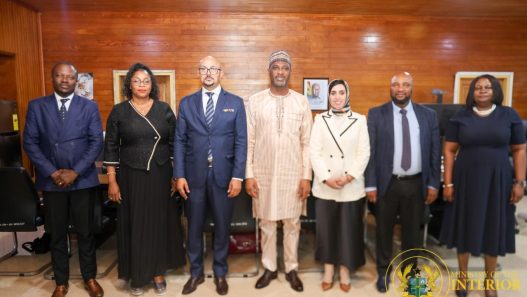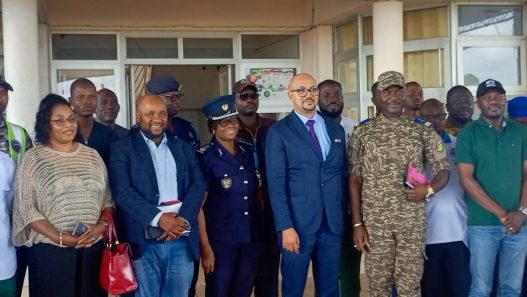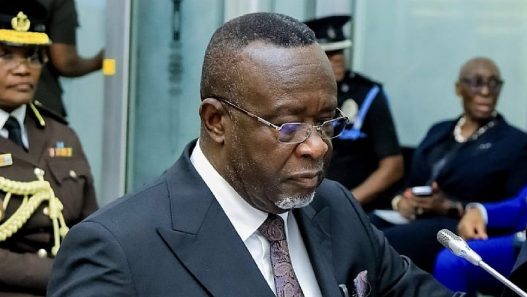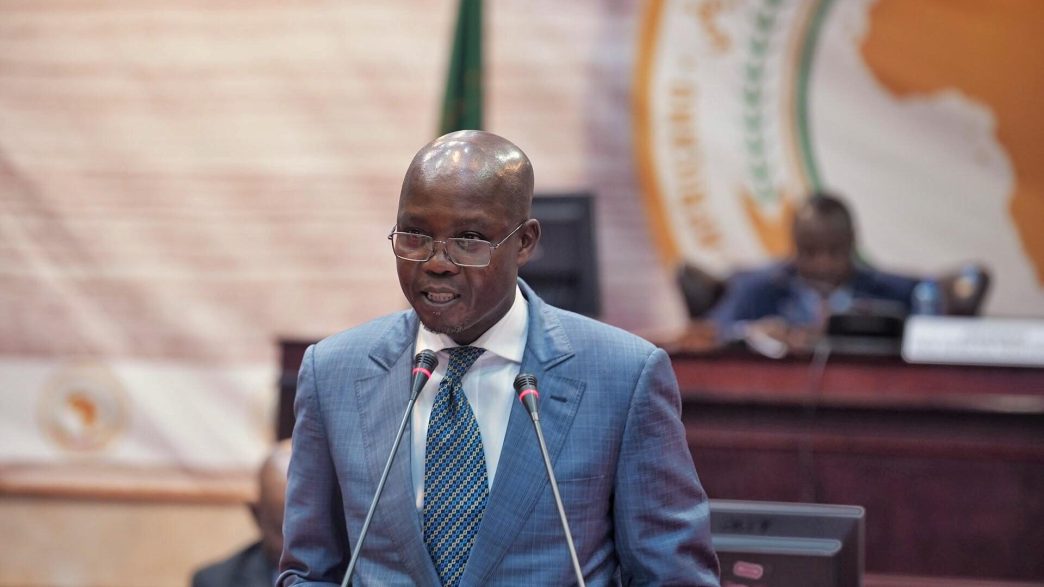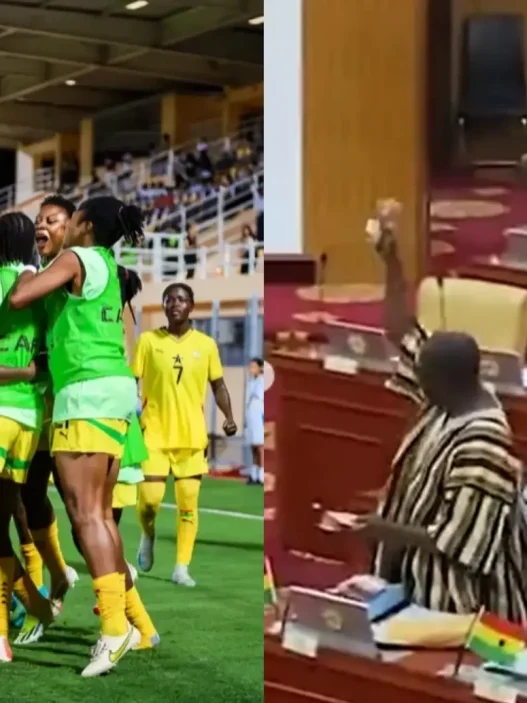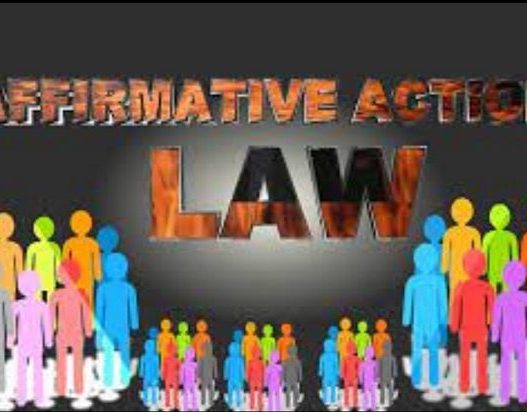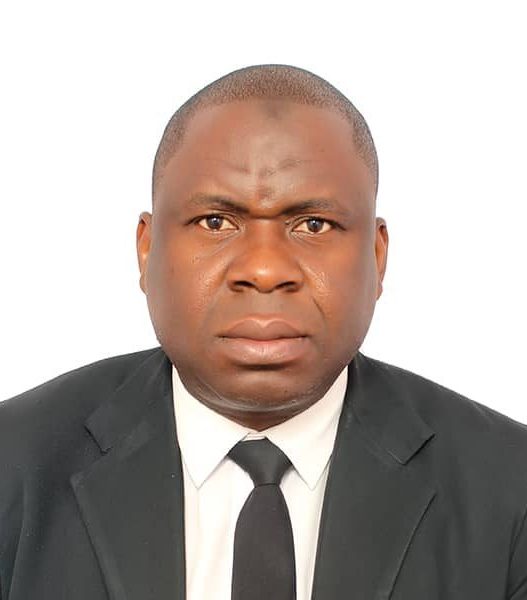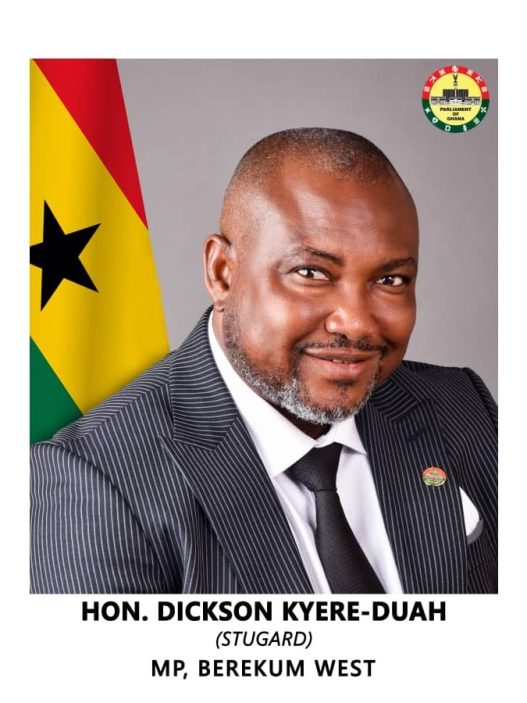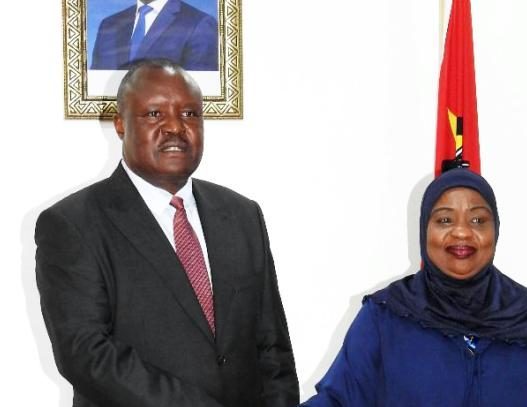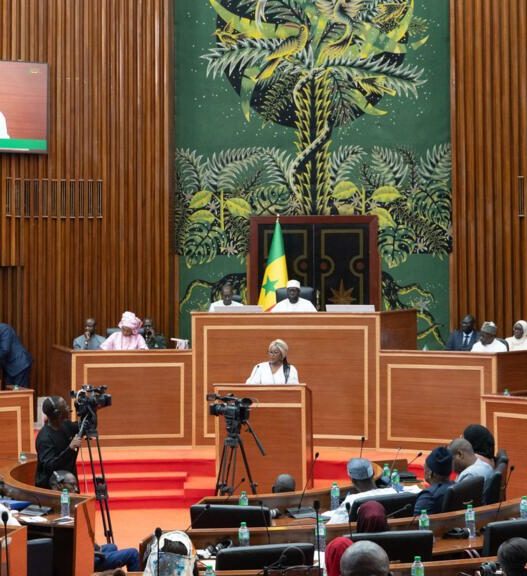Story by: Gilbert Borketey Boyefio
Midrand, South Africa: The Speaker of Ghana’s Parliament, Rt. Hon. Alban Bagbin, has stressed that reparatory justice is not a new demand, and it is certainly not theoretical, noting that, “It comes from generations who resisted exploitation, who called for truth, and who stood firm in the face of dehumanization”.
In a solidarity message read on his behalf, by the First Deputy Speaker of Ghana’s Parliament, Hon. Bernard Ahiafor, during the opening ceremony of the Fifth Ordinary Session of the Sixth Parliament of the Pan-African Parliament, in Midrand, South Africa, Rt. Hon. Alban Bagbin, observed that the African Union’s 2025 Theme of the Year: “Justice for Africans and People of African Descent through Reparations”, is not just an event, it is a platform for meaningful reflection, honest dialogue, and decisive action.
“We are here because the pursuit of justice remains unfinished, and the responsibility to repair and restore continues to echo with urgency and purpose. Today’s theme is a reminder that acknowledgment without action is not enough. Justice cannot stop at apology. It must translate into tangible redress. Reparatory justice is not an act of charity; it is a right, as many have affirmed. And it is essential for moral balance and for long-term development,” he said.
He noted that the African Union has shown real leadership in putting reparations at the heart of the global conversation. “From the Durban Declaration in 2001 to the AU Assembly’s decision on reparations, and more recently the Accra Declaration in 2022, the message is clear: Africa will not stay silent on this issue. These decisions represent not just formal positions but the will of a continent that refuses to let history’s wounds go unhealed.”
According to Rt. Hon Alban Bagbin, “Today’s dialogue reaches beyond the past. It speaks to the present realities and the continued impact of systems born out of historical injustice. The legacy of colonialism, the transatlantic slave trade, apartheid, and structural racism is still visible. We see it in unequal education systems, in the underrepresentation of African countries in global institutions, and in the financial structures that fail to meet the needs of African economies and communities. True justice will only be possible when we commit to addressing both the roots and the branches of these issues”.
He stressed that when we speak of peaceful and inclusive societies, as envisioned in Sustainable Development Goal 16, we cannot avoid the deeper question of fairness. Reparatory justice offers us a powerful framework for addressing inequality at its core. It offers a path to transformation, not just surface-level solutions, and challenges us to confront hard truths with honesty and courage. Whether through policy reform, public education, or economic redress, we must be willing to make the changes that justice demands.
Building Momentum
In November 2023, Ghana, in collaboration with the African Union Commission, hosted the Accra Reparations Conference, which was a powerful moment of unity. The event brought together leaders from Africa and the Caribbean, representatives of the United Nations, civil society, academics, and diaspora communities. It served as a reminder that while geographies may differ, histories, struggles and aspirations are deeply connected.
In July 2024, the AU signed a Memorandum of Understanding with the Africa Transitional Justice Legacy Fund. This was an important step in building long-term collaboration on issues like human rights, good governance, justice, and healing. These are not just bureaucratic concerns. They are essential foundations for lasting peace and genuine progress.
The United Nations Secretary-General has underscored the importance of reparatory justice, especially for people of African descent. He has called for more equitable representation in international institutions and a global financial system that better serves African nations. His latest report to the General Assembly recommends a comprehensive approach, one that is participatory, inclusive, and sensitive to gender and context.
Similarly, the UN High Commissioner for Human Rights has offered valuable guidance through the agenda for transformative change. That work emphasis the need to dismantle systemic racism and build accountability into our institutions. The message is consistent across all levels. Reparatory justice must be rooted in human rights and must aim to restore both dignity and opportunity.
“As we reach the end of the first International Decade for People of African Descent and prepare to enter the second, we stand at a crossroads. This is a moment to gather the wisdom, experience, and energy of the past ten years and carry it into a more determined decade ahead. That means building stronger legal frameworks for reparations. It means teaching the next generation the truth about our shared history. And it means designing political and economic systems that recognize and uphold the value of African lives, culture, and leadership”, he noted.
Other dignitaries that graced the opening ceremony of the Fifth Ordinary Session of the Sixth Parliament were: the Guest of Honour, H.E. Ambassador Professor Miguel Cesar Domingues Bembe, Ambassador of the Republic of Angola to Ethiopia and UNECA, and Chairperson of the Permanent Representatives Committee; The Deputy Minister of International Relations and Co-operation, Hon. Thandi Moraka; Hon. Hamma Salama, Speaker of the Saharawi National Council; H.E Hilarion Etong, President of the Parliamentary Assembly of the Francophonie (APF); H.E. Mrs. Nardos Bekele-Thomas, CEO of AUDA NEPAD, H.E. Ambassador Marie Antoinette Rose Quatre, CEO of African Peer Review Mechanism (APRM); Hon. Sylvia Lucas, Vice President of the SADC Parliamentary Forum; Representatives of the Permanent Representatives Committee; Ambassadors representing Member States in the Republic of South Africa; Ambassadors of the Pan African Parliament; The Clerk of the Pan-African Parliament, Ms. Lindiwe Khumalo; the Clerk of the SADC Parliamentary Forum, Ms. Boemo Sekgoma; and Representatives of the Diaspora.

